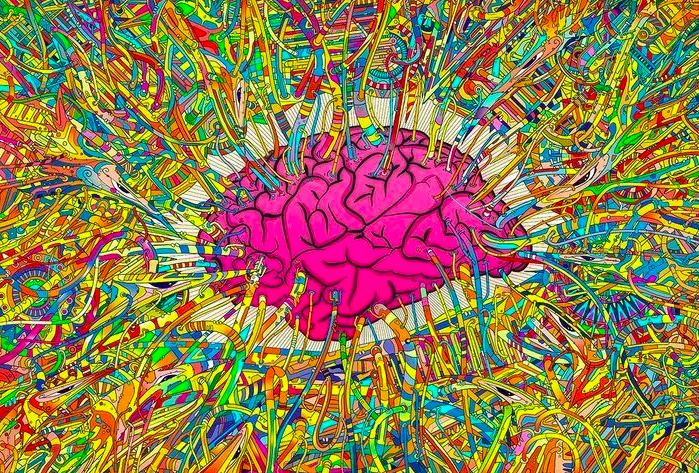Image via
A new Canadian research firm is exploring whether regular DMT microdoses can help patients recover more quickly after suffering a stroke.
Algernon Pharmaceuticals, a drug company working to find new treatments for COVID-19, other pulmonary ailments, and strokes, is planning to launch a clinical trial to discover whether DMT can help mitigate the damage caused by a stroke. In this trial, the company plans to give continuous intravenous doses of DMT to patients who have recently suffered a stroke. These doses will be kept at a sub-hallucinogenic level, so subjects will not need to worry about traveling to other dimensions during their recovery.
“By pursuing a continuous active microdose, the goal will be to provide patients with the therapeutic benefits of DMT, without having a psychedelic experience,” the company explained in a statement. “This is an important element when considering treating a patient who has just suffered a stroke, wherein medications that cause a hallucinogenic response would cause unwanted confusion and stress.”
Over the past several years, researchers have found that psychoactive drugs like DMT and cannabis can promote neurogenesis, or brain cell regrowth. One recent animal study found that DMT caused brain cell samples to grow, and researchers linked this neurogenesis to improvements in memory and spatial learning. Another recent study also found that small doses of DMT helped mice recover from brain trauma more effectively.
Algernon’s “decision to investigate DMT and move it into human trials for stroke is based on multiple independent, positive preclinical studies demonstrating that DMT helps promote neurogenesis as well as structural and functional neural plasticity,” the company explained. “These are key factors involved in the brain’s ability to form and reorganize synaptic connections, which are needed for healing following a brain injury.”
In order to minimize damage caused by a stroke, physicians need to act as quickly as possible. For patients who have suffered an ischemic stroke, swift administration of blood-thinning medication can help reduce damage and speed recovery. But for anyone who has had a hemorrhagic stroke, these blood-thinners could be fatal. And the only way to determine the difference between the two is by using a CT scan, which greatly increases the amount of time that a patient has to wait before treatment.
If their clinical trials prove successful, Algernon is hoping to create a new DMT-based medication that physicians can use to treat either kind of stroke. Ideally, the company is hoping that medical first responders will be able to administer this medication to stroke victims as soon as the ambulance arrives, increasing their chances of making a full recovery.
Researchers still need to gain approval from government authorities before giving human subjects DMT, which is still considered a Schedule I drug with no medical use. The company is hopeful that their “microdosing approach to developing a DMT treatment may enable a much wider review and acceptance of its data, including garnering the early interest of research investigators, the interest of clinical trial patients, and ultimately clinical acceptance,” however.
The company is eventually hoping to gain a Breakthrough Therapy designation from the US Food and Drug Administration (FDA), which would allow them to fast-track the process of getting their DMT medicine legalized. The FDA has already granted this coveted status to MDMA and psilocybin, and researchers are confident that physicians will soon be able to legally prescribe both of these drugs to patients as an adjunct to therapy.











